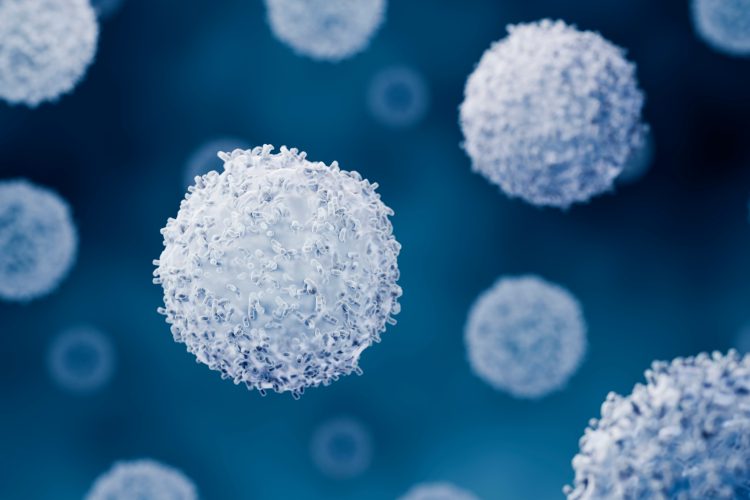Translating ‘nature’s cues’ into breakthrough immunotherapies
Posted: 25 July 2024 | Anish Suri (Cue Biopharma), Drug Target Review | No comments yet
Discover how Cue Biopharma harnesses the curative potential of the body’s intrinsic immune system to develop treatments for oncology and autoimmune diseases. Here, Anish Suri, Chief Scientific Officer of Cue Biopharma, explains how its platforms and biologics are designed to selectively modulate disease-specific T cells to restore immune balance, aiming to improve efficacy and minimise adverse effects.


How does Cue Biopharma’s Immuno-STAT platform selectively modulate disease-specific T cells to restore immune balance?
Cue Biopharma’s Immuno-STATs platform and biologics are designed to mimic the immune system’s natural processes to fight cancer or avoid self-tissue destruction.
The body performs immune surveillance to find and flag ‘non-self’ signals, including cancer proteins, for destruction, while ensuring minimal damage to self-tissue components. T cells accomplish this function via interactions with specialised cells referred to as antigen-presenting cells (APCs).
APCs and T cell interactions involve two signals: Signal 1 occurs when the T cell receptor (TCR) recognises protein fragments, or peptides, bound to specialised molecules known as major histocompatibility complex (MHC) molecules on APCs (human MHC molecules are also referred to as human leukocyte antigen (HLA) molecules). Signal 2 is a co-stimulatory signal that results in full T cell activation and effector function.
AI-powered drug discovery: Accelerating the development of life-saving therapies
18 September 2025 | 14:00PM BST | FREE Webinar
Join this webinar to learn how AI is accelerating early-stage drug discovery and improving target identification, practical strategies for applying AI effectively within your organisation and to ask your questions to our industry expert! Dr Remco Jan Geukes Foppen will share practical insights into how AI is being applied across the pharmaceutical sector, helping teams move faster and make better-informed decisions. With experience spanning data management, image analysis, bioinformatics, and machine learning in clinical research, he brings both deep technical expertise and strategic understanding of real-world challenges.
Register Now – It’s Free!
Immuno-STAT biologics contain these two key signals, hence emulating nature’s ‘cues’. They are built upon the fragment crystallisable (Fc) portion of the human antibody molecule that provides the structure’s stability and facilitates ease of manufacturability.
Immuno-STATs can be selectively designed for activating tumour-specific T cells or inhibiting autoreactive T cells.
What unmet needs in oncology and autoimmunity does the Immuno-STAT platform address through its targeted approach?
The Immuno-STAT platform addresses two major challenges in immunotherapy. Firstly, it allows for selective modulation of disease-relevant T cells without systemically activating (oncology) or broadly suppressing (autoimmunity) the immune system. Secondly, the virtue of high selectivity of Immuno-STAT therapeutic molecules enables favorable tolerability and safety in patients. Hence it achieves the goal of maximising efficacy while preserving patient safety.
Can you provide an overview of Cue Biopharma’s oncology pipeline, particularly focusing on its clinical trials?
Cue Biopharma’s lead oncology programme, CUE-101, as part of the CUE-100 series, addresses recurrent/metastatic human papillomavirus (HPV)-positive head and neck cancer. CUE-101 Signal 1 is the HPV E7 protein, harbored by HPV-induced cancer cells, and Signal 2 consists of the engineered IL-2 variant. As such, it is designed to activate and expand HPV16 tumour-specific T cells.
In a Phase I trial, CUE-101 has demonstrated promising efficacy both as monotherapy and in combination with KEYTRUDA® (pembrolizumab). As monotherapy, CUE-101 has shown a median overall survival more than doubling that of historical responses with OPDIVO® (nivolumab) and KEYTRUDA® (pembrolizumab). In combination with pembrolizumab, CUE-101 has achieved an overall response rate (ORR) more than double that of pembrolizumab alone. These encouraging results have prompted discussions with the FDA for potential registrational trials.
Cue Biopharma’s second lead programme, CUE-102, targets Wilms’ Tumour 1 (WT1)-positive cancers such as gastric, pancreatic, ovarian, and colon cancers. It is currently in a Phase Ib trial and has demonstrated promising anti-tumour activity and safety signals thus far. Key data readouts are anticipated in the second half of 2024.
The Immuno-STAT platform underpins these programmes, offering a versatile method to stimulate the immune system against various cancers by substituting signal 1 with different tumour-specific antigens.
What are the promising aspects of CUE-401, Cue Biopharma’s lead autoimmune asset?
CUE-401 is a novel bispecific molecule designed to selectively differentiate and expand CD4+FoxP3+ regulatory T cells (Tregs), essential for immune tolerance and homeostasis.
CUE-401 is engineered to deliver two key cytokine signals known to induce the differentiation of naïve CD4+ T cells into regulatory T cells (‘induced Tregs’ or iTregs), as well as expand existing natural Tregs (nTregs). The two cytokine signals are: transforming growth factor-beta (TGF-β), modified to reduce TGF-β receptor binding, and an engineered interleukin-2 (IL-2) molecule modified to reduce affinity for interleukin-2 (IL-2) receptor subunits. Administration of wild-type TGF-β and IL-2 systemically cannot ensure that both signals will engage with the same T cell, causing systemic side effects.
CUE-401 overcomes these challenges by delivering both cytokine signals to the same target T cell. Preclinical research has demonstrated that CUE-401-induced Tregs can suppress effector T cell responses, supporting mechanistic activity. CUE-401 has the potential to circumvent safety liabilities and be deployed for many chronic autoimmune diseases such as lupus, inflammatory bowel diseases, rheumatoid arthritis and others.
Cue Biopharma continues to characterize CUE-401 in preclinical disease models to identify priority indications.
How does Cue Biopharma’s new series, CUE-500, designed to direct selective memory T cells to deplete B cells, potentially address autoimmune and inflammatory diseases?
Recent data with CAR T cell approaches targeting B cells has demonstrated early promising data that supports this approach for treating autoimmune and inflammatory diseases. CUE-500 series is a biologic designed to exploit T cell-mediated B cell depletion, which is in contrast to CAR T approaches that involve complex manufacturability and patient treatment regimens and safety considerations.
CUE-500 is a bispecific Immuno-STAT biologic that builds upon the clinical de-risking accomplished with the CUE-100 series. As with other Immuno-STAT biologics, it incorporates two signals: Signal 1 is a conserved viral epitope recognised by viral-specific memory T cells, such as cytomegalovirus, SARS Cov2, or Epstein-Barr virus. Signal 2 is a single-chain variable fragment (scFV) directed against B cell surface molecules like Cluster of Differentiation 19 (CD19). This configuration enables CUE-500 to find target B cells, making them appear as virally infected cells, to be recognised and destroyed by virus-specific T cells.
Deploying a biologic to selectively redirect ‘killer’ T cells toward B cell depletion, while avoiding the systemic activation of all T cells addresses the important mechanism of autoimmune and inflammatory diseases and may offer significant advantages over current cell therapy-based strategies.
About the author


Jon Chomitz Photography
3 Prescott Street
Somerville, MA 02143
617.625.6789
www.chomitz.com
[email protected]
Anish Suri, Chief Scientific Officer of Cue Biopharma
Anish Suri is an immunologist with extensive experience in basic and translational research focused on immuno-oncology, autoimmune disorders, transplantation rejection and inflammation. Prior to joining Cue Biopharma, he held roles of increasing responsibility at Janssen Pharmaceutical Companies, including a key leadership position overseeing strategic immunoscience initiatives.
Before Janssen, he was responsible for providing strategic guidance to immuno-oncology and immunology drug discovery programmes at Bristol-Myers Squibb Pharmaceutical Research Institute. Prior to his work in the pharmaceutical industry, Dr Suri was Assistant Professor of Pathology and Immunology at Washington University School of Medicine. He received his PhD in immunology from Washington University in St Louis, Missouri.
Related topics
Drug Development, Drug Discovery, Drug Targets, Immunotherapy, Oncology
Related conditions
autoimmune disease, Cancer
Related organisations
CUE Biopharma
Related people
Anish Suri (Cue Biopharma)








